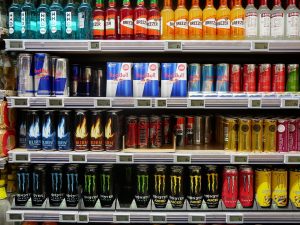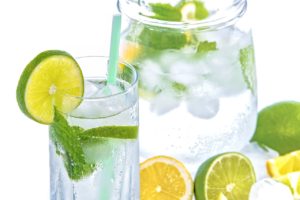 Energy drinks are popular; but what is the buzz on them?
Energy drinks are popular; but what is the buzz on them?
Market data shows a continued rise in demand for energy drinks. These beverages promise things like increased energy, improved mood and sharper thinking. However, negative outcomes related to these drinks are on the rise.
Dietary Supplement Ingredients
Most energy drinks contain caffeine and multiple other stimulants. The Food and Drug Administration (FDA) doesn’t define the term “energy drink”. Therefore manufacturers can decide whether to label their products as dietary supplements or beverages. For beverages, manufacturers must follow the FDA’s safety limits for ingredients like caffeine. On the other hand, if labeled as a dietary supplement, they are not regulated. Consequently, there are essentially no safety guidelines.
Common Ingredients of Energy Drinks
- Caffeine – main energy-boosting ingredient in many energy drinks.
- A 16-ounce energy drink may contain anywhere from 160 to 240 milligrams.
- An 8-ounce cup of coffee contains 100 to 200 milligrams.
- FDA recommends no more than 400 milligrams of caffeine a day.
- Guarana – additional caffeine comes from the berries of this tropical plant — more caffeine than coffee beans.
- Taurine – an amino acid produced naturally in our bodies; also found in foods like meat, fish, and dairy.
- There is no indication we need more than our bodies produce.
- Glucuronolactone – no evidence this molecule commonly found in energy drinks actually boosts energy.
- Niacin, folic acid, and vitamin B12 – these vitamins are often promoted as energy producers.
- Unless there’s a deficiency, consuming more does not increase energy.
- Very high supplemental doses of vitamins raise health concerns.
- L-Carnitine – Created naturally by the liver and kidneys.
- L-Carnitine is critical to cellular energy production.
- The body produces sufficient amounts without supplementation.
- Sugar – As simple carbohydrates, sugars are used by the body to produce energy.
- Dietary intake of too much added sugar has been linked to health problems.
- Some energy drinks typcially have more than 60 grams of added sugar.
- American Heart Association’s recommends daily maximum intake of 25 grams of added sugar for women and 37 grams for men.
Health Risks
Limited studies support claims that these beverages actually boost energy. Many studies raise questions as to their safety. Emergency room visits involving consumption of energy drinks has increased significantly over the years. Serious, life-threatening events, hospitalization, and death have been reported. A study published in the May 2019 Journal of the American Heart Association showed caffeinated energy drinks significantly increase heart rate and can raise blood pressure. However, it’s unclear whether this is due to one ingredient in particular, or a combination of energy drink ingredients.
The bottom line is energy drinks are not a healthy, effective, or safe way to boost energy. Instead, keep your energy up naturally by eating well, staying hydrated, keeping physically active and getting plenty of sleep.
Alternatives
In conclusion, when you need a pick-me-up, grab a glass of water and a piece of fruit, try a cup of coffee or tea, or take a ten-minute power nap or a brisk walk.


I am trying to drink more water using the half my weight measurement, knowing that from a doctor’s recommendation to use the guide of drinking a minimum of 12 oz and maximum of 120 oz. Not enough is not healthy and too much is not healthy either, thus using half my body weight is a guide. This article on Energy Drinks is very helpful because when I am in the store there is an entire isle dedicated to energy drinks that all say they are the best!
This article helped me out a great deal, so thank you!